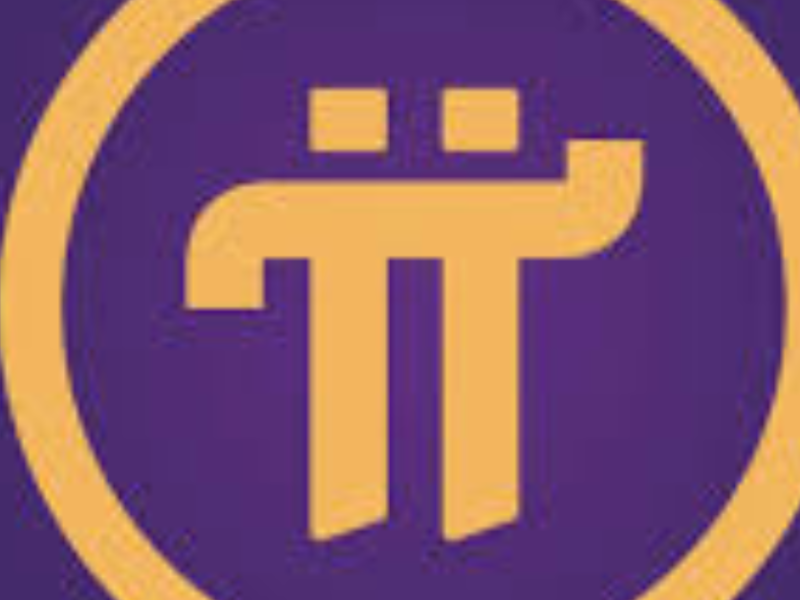Cryptocurrency trading has become an essential part of the financial landscape, offering investors new opportunities to grow their wealth. With the rise of digital currencies, the choice of trading platforms has become crucial for traders looking to optimize their investment strategies. Bybit, Bitget, and Binance are three of the most prominent cryptocurrency exchanges today. This comprehensive comparison aims to provide an in-depth look at each platform, evaluating their features, security measures, fee structures, and overall user experience.
1. Company Backgrounds
Bybit
Bybit was founded in March 2018, with its headquarters located in Singapore. The platform’s mission is to provide professional, smart, intuitive, and innovative trading and investment solutions for retail and professional clients around the world. Bybit has quickly grown in popularity due to its user-friendly interface and robust trading features. Key milestones for Bybit include the introduction of perpetual contracts and the expansion of its services to include various digital assets beyond Bitcoin.
Bitget
Bitget, established in 2018 and headquartered in Singapore, aims to offer a seamless trading experience for its users. The platform focuses on providing advanced trading tools and features that cater to both novice and experienced traders.
Bitget has made significant strides in the market, particularly with its copy trading feature, which allows users to mimic the trades of successful traders. This innovative approach has attracted a growing user base and set Bitget apart from many competitors.
Binance
Founded in 2017 by Changpeng Zhao, Binance has quickly risen to become the world’s largest cryptocurrency exchange by trading volume. Originally based in China, Binance has since moved its headquarters to Malta, with a global presence and services offered in numerous countries.
Binance’s mission is to increase the freedom of money globally and to bring cryptocurrency to the mainstream. Key milestones for Binance include the launch of its native cryptocurrency, Binance Coin (BNB), and the establishment of Binance Smart Chain, a blockchain network designed for running smart contract-based applications.
2. User Interface and Experience
Bybit
Bybit’s user interface is designed with both novice and experienced traders in mind. The platform offers a clean and intuitive design, making it easy to navigate through different sections. Bybit provides a robust set of charting tools and indicators, which are crucial for technical analysis. The mobile app mirrors the desktop experience, ensuring traders can manage their portfolios and execute trades on the go. Overall, Bybit’s interface is user-friendly and highly responsive.
Bitget
Bitget’s interface is sleek and modern, with a focus on providing a seamless trading experience. The platform’s dashboard is well-organized, allowing users to quickly access important features such as trading pairs, account information, and market data. Bitget also offers a comprehensive set of charting tools and indicators, which are essential for traders looking to analyze market trends. The mobile app is equally impressive, offering full functionality for trading and account management. Bitget’s user interface is designed to cater to traders of all experience levels, ensuring a smooth and efficient trading process.
Binance
Binance’s interface is both comprehensive and user-friendly, catering to a wide range of users from beginners to advanced traders. The platform offers multiple trading views, including basic and advanced options, which can be customized according to the user’s preference. Binance provides an extensive array of charting tools, indicators, and order types, making it a powerful platform for technical analysis. The mobile app is feature-rich and designed to provide a seamless experience, with all the functionalities available on the desktop version. Binance’s interface is robust, efficient, and highly customizable.
3. Trading Features
Bybit
Bybit is known for its advanced trading features, including perpetual contracts with up to 100x leverage. The platform supports various cryptocurrencies, including Bitcoin, Ethereum, and Ripple. Bybit offers a range of order types, such as limit, market, and conditional orders, allowing traders to execute their strategies with precision. One of Bybit’s standout features is its dual-price mechanism, which helps prevent market manipulation and ensures fair trading. Additionally, Bybit provides an insurance fund to protect traders from negative equity, further enhancing the platform’s appeal.
Bitget
Bitget offers a diverse range of trading features, including spot trading, futures trading, and margin trading. The platform supports a wide variety of cryptocurrencies, providing traders with numerous options to diversify their portfolios. Bitget’s unique copy trading feature allows users to follow and replicate the trades of successful traders, making it an attractive option for beginners. The platform also offers various order types and advanced trading tools, such as stop-loss and take-profit orders, enabling traders to manage their risks effectively. Bitget’s comprehensive trading features make it a versatile platform for traders of all experience levels.
Binance
Binance is renowned for its extensive trading features, which include spot trading, futures trading, margin trading, and options trading. The platform supports a vast array of cryptocurrencies, offering one of the most extensive selections in the market. Binance provides a range of order types, advanced charting tools, and technical indicators, catering to both novice and professional traders. Additionally, Binance offers staking, lending, and savings options, allowing users to earn passive income on their crypto holdings. The platform’s comprehensive suite of trading features and financial products makes it a powerhouse in the cryptocurrency exchange landscape.
4. Security Measures
Bybit
Security is a top priority for Bybit, and the platform employs a range of measures to protect user assets and data. Bybit uses multi-signature cold wallets to store the majority of funds offline, reducing the risk of hacks. The platform also implements two-factor authentication (2FA) for account login and withdrawals, enhancing account security. Bybit conducts regular security audits and has a dedicated team to monitor and respond to potential threats. Additionally, the platform has an insurance fund to cover losses in the event of unexpected market events or security breaches.
Bitget
Bitget places a strong emphasis on security, employing a variety of measures to safeguard user assets and information. The platform uses multi-signature cold wallets to store the majority of funds offline, minimizing the risk of cyberattacks. Bitget also offers two-factor authentication (2FA) for account access and withdrawals, adding an extra layer of security. The platform conducts regular security assessments and has a team dedicated to monitoring and addressing potential vulnerabilities. Bitget’s commitment to security ensures a safe trading environment for its users.
Binance
Binance is well-known for its robust security measures, which include the use of multi-signature cold wallets and a Secure Asset Fund for Users (SAFU) to protect user funds in the event of a security breach. The platform employs two-factor authentication (2FA) and provides users with advanced security features, such as withdrawal whitelist and device management. Binance conducts regular security audits and has a dedicated security team to monitor and respond to threats. Despite experiencing a major hack in 2019, Binance has taken significant steps to enhance its security infrastructure, maintaining its reputation as a secure trading platform.
5. Fee Structures
Bybit
Bybit operates on a competitive fee structure, charging a 0.075% taker fee and offering a -0.025% maker rebate for perpetual contracts. The platform does not charge any deposit fees, but withdrawal fees vary depending on the cryptocurrency. Bybit’s fee structure is transparent and straightforward, making it easy for traders to understand the costs associated with their trades.
Bitget
Bitget’s fee structure is designed to be competitive and transparent. The platform charges a 0.04% maker fee and a 0.06% taker fee for futures trading, while spot trading fees are set at 0.1% for both makers and takers. Bitget does not charge any deposit fees, and withdrawal fees depend on the cryptocurrency being withdrawn. The platform’s fee structure is straightforward and offers good value for traders.
Binance
Binance offers one of the lowest fee structures in the industry, with spot trading fees starting at 0.1% for both makers and takers. Users can further reduce their trading fees by holding and using Binance Coin (BNB) to pay for transaction fees. Binance also offers competitive fees for futures and margin trading, with additional discounts available for high-volume traders. The platform does not charge any deposit fees, and withdrawal fees vary depending on the cryptocurrency. Binance’s fee structure is highly competitive and designed to provide cost-effective trading solutions for its users.
6. Customer Support
Bybit
Bybit provides 24/7 customer support through live chat, email, and social media channels. The platform’s support team is known for being responsive and helpful, addressing user inquiries and issues promptly. Bybit also offers a comprehensive Help Center with a range of articles and tutorials to assist users in navigating the platform and resolving common issues. User reviews generally highlight Bybit’s efficient and effective customer support.
Bitget
Bitget offers 24/7 customer support via live chat, email, and social media. The platform’s support team is dedicated to providing timely and effective assistance to users, addressing their concerns and queries promptly. Bitget also has an extensive Help Center with FAQs, guides, and tutorials to help users navigate the platform and resolve common issues. User feedback on Bitget’s customer support is generally positive, highlighting the platform’s commitment to user satisfaction.
Binance
Binance provides 24/7 customer support through live chat, email, and social media platforms. The platform’s support team is known for being responsive and helpful, addressing user inquiries and issues efficiently. Binance also offers a comprehensive Support Center with a wide range of articles, guides, and tutorials to assist users in navigating the platform and resolving common issues. User reviews generally commend Binance’s customer support, although the sheer volume of users can sometimes lead to longer response times.
7. Regulatory Compliance
Bybit
Bybit operates in compliance with international regulations and has implemented robust KYC (Know Your Customer) and
AML (Anti-Money Laundering) procedures to ensure the legitimacy and security of its trading environment. Although Bybit is headquartered in Singapore, it serves a global user base and strives to adhere to the regulatory requirements of different jurisdictions. This includes cooperating with local authorities when necessary and maintaining transparency in its operations.
Bitget
Bitget is committed to regulatory compliance and has established comprehensive KYC and AML policies to safeguard its platform. The exchange operates globally, taking into account the regulatory frameworks of various regions. Bitget aims to build trust with its users by ensuring that all transactions are secure and compliant with international standards. This commitment to compliance helps Bitget maintain a reputable and secure trading environment.
Binance
Binance has made significant efforts to comply with global regulatory standards, despite its decentralized nature and global operations. The platform has implemented extensive KYC and AML protocols to ensure the security and legitimacy of its transactions. Binance has also been proactive in engaging with regulatory authorities and adapting its policies to meet local requirements. This includes establishing regional entities to comply with specific regulatory frameworks and enhancing its transparency and cooperation with regulators worldwide.
8. Pros and Cons
Bybit
Pros:
- User-friendly interface with advanced charting tools.
- High leverage options for experienced traders.
- Strong security measures, including multi-signature cold wallets and insurance funds.
- Competitive fee structure with maker rebates.
Cons:
- Limited range of supported cryptocurrencies compared to competitors.
- Primarily focused on derivatives trading, which may not suit all traders.
Bitget
Pros:
- Comprehensive trading features, including copy trading.
- User-friendly interface and mobile app.
- Strong security measures and regular security assessments.
- Competitive fee structure and no deposit fees.
Cons:
- Less well-known than some other exchanges, which may affect liquidity.
- Limited range of financial products compared to more established platforms.
Binance
Pros:
- Extensive range of supported cryptocurrencies and trading pairs.
- Wide variety of trading features, including spot, futures, margin, and options trading.
- Strong security measures and proactive regulatory compliance.
- Competitive fee structure with discounts for using BNB.
Cons:
- The sheer volume of users can lead to occasional customer support delays.
- Regulatory challenges in certain regions, which can affect service availability.
9. User Reviews and Reputation
Bybit
Bybit generally receives positive feedback from its users, particularly for its intuitive interface, robust trading features, and responsive customer support. The platform’s strong security measures and competitive fees are also frequently highlighted. However, some users have noted the limited range of supported cryptocurrencies and the platform’s primary focus on derivatives trading as areas for improvement.
Bitget
Bitget has garnered positive reviews for its innovative features, such as copy trading, and its user-friendly interface. Users appreciate the platform’s comprehensive trading tools and competitive fees. Bitget’s strong security measures and responsive customer support also contribute to its positive reputation. However, some users have mentioned that the platform’s lesser-known status compared to bigger exchanges might impact its liquidity and range of financial products.
Binance
Binance is widely regarded as one of the best cryptocurrency exchanges, with positive reviews highlighting its extensive range of supported cryptocurrencies, comprehensive trading features, and competitive fees. The platform’s strong security measures and commitment to regulatory compliance are also frequently praised. However, the high volume of users can sometimes lead to delays in customer support responses, and the platform has faced regulatory challenges in certain regions, which can impact service availability.
Conclusion
Choosing the right cryptocurrency exchange depends on a variety of factors, including trading preferences, security needs, and fee considerations. Bybit, Bitget, and Binance each offer unique strengths that cater to different types of traders.
Bybit is an excellent choice for traders seeking a user-friendly platform with advanced trading tools and high leverage options. Its robust security measures and competitive fee structure make it a reliable option for derivatives trading.
Bitget stands out for its innovative features like copy trading, making it a great choice for beginners and those looking to follow successful traders. The platform’s comprehensive trading tools and competitive fees also make it a versatile option for a wide range of users.
Binance remains a powerhouse in the cryptocurrency exchange market, offering an extensive range of supported cryptocurrencies and a wide variety of trading features. Its strong security measures, competitive fees, and proactive regulatory compliance make it a top choice for traders of all experience levels.
In summary, each platform has its unique advantages, and the best choice will depend on individual trading needs and preferences. Bybit, Bitget, and Binance all provide secure, efficient, and user-friendly environments for cryptocurrency trading, each with its distinct features and strengths. As the cryptocurrency landscape continues to evolve, these platforms are well-positioned to adapt and meet the changing needs of traders around the world.





